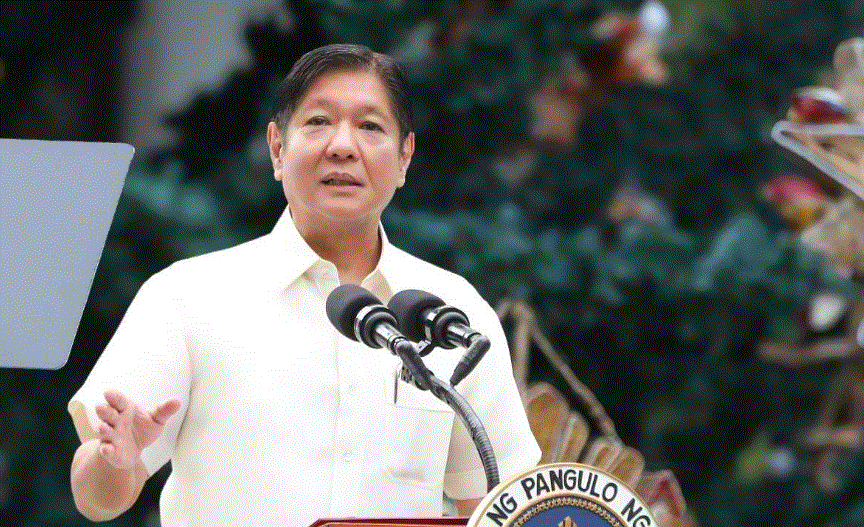Private Schools Quit NTF-ELCAC to Protect Academic Freedom
The Coordinating Council of Private Educational Associations (COCOPEA), the largest private school network in the Philippines, has withdrawn from the National Task Force to End Local Communist Armed Conflict (NTF-ELCAC) after just three months of membership. The decision, made after consultations, was aimed at preserving academic freedom and focusing on education issues rather than insurgency concerns. COCOPEA’s involvement with NTF-ELCAC was controversial, with student groups criticizing the task force for its alleged militarization of schools and history of red-tagging activists. The United Nations (UN) and human rights groups have also called for the task force’s abolition, citing concerns over human rights violations and misuse of public funds.

Concerns Over Red-Tagging and Academic Integrity
Private educational institutions have expressed apprehensions about the task force’s alleged practice of "red-tagging"—the labeling of individuals and organizations as communist sympathizers without due process. School officials argue that such actions compromise the safety of students and faculty while undermining the core principles of critical thinking and open discourse within academic environments.
According to the Coordinating Council of Private Educational Associations (COCOPEA), several member institutions have received reports of faculty and students being unjustly accused of subversive activities. "Education should be a space for free inquiry, debate, and the exchange of ideas. When schools are subjected to surveillance and intimidation, it hinders the fundamental mission of education," said COCOPEA Chairman Dr. Antonio Dizon.
Legal and Institutional Autonomy at Risk
Legal experts and academic leaders have raised concerns that continued involvement with NTF-ELCAC could jeopardize the independence of private institutions. Many argue that the task force’s interventions could lead to excessive government influence over curriculum development and faculty hiring, violating institutional autonomy guaranteed by Philippine law.
Dr. Maria Luisa Santos, a constitutional law professor, emphasized, "The government has a role in ensuring national security, but this should not come at the expense of suppressing academic freedom. Schools must remain places where students and faculty can freely express ideas without fear of persecution."
NTF-ELCAC’s Response and Government Stance
The NTF-ELCAC has defended its role in monitoring possible threats to national security, maintaining that its programs aim to protect students from recruitment by insurgent groups. In a statement, task force spokesperson Lt. Gen. Antonio Parlade Jr. argued, "We are not suppressing academic freedom. We are merely ensuring that schools do not become breeding grounds for radicalization and extremist ideologies."
However, human rights organizations and student groups have countered this claim, arguing that the government should focus on addressing socio-economic grievances rather than imposing measures that curtail freedom of expression.
Support from Educators and Student Organizations
Various student councils, educators’ unions, and civil society groups have expressed their support for private schools distancing themselves from NTF-ELCAC. Many view the move as a necessary step toward preserving democratic values within academic institutions.
"Students should feel safe expressing their views, engaging in activism, and participating in discourse without fear of being branded as enemies of the state," said University Student Alliance president Liana Cruz.
Meanwhile, international human rights groups have also weighed in, urging the Philippine government to uphold its commitment to academic freedom and human rights.
The Road Ahead for Private Institutions
As more schools reassess their engagement with NTF-ELCAC, education officials anticipate further discussions on balancing national security interests with academic independence. The Department of Education and Commission on Higher Education have yet to release formal statements on the issue, but stakeholders continue to call for dialogue and policy reassessment.
For now, private schools remain firm in their decision to protect their institutional integrity, standing as guardians of free thought and critical inquiry amid growing political tensions.
What's Your Reaction?












/https://tf-cmsv2-smithsonianmag-media.s3.amazonaws.com/filer_public/54/66/546650fa-26a4-40fd-8d6d-5a7a04540f81/rosetta2.png)
:max_bytes(150000):strip_icc():focal(999x0:1001x2)/robert-prevost-050825-1-39395418ab494da5a3a700c9478e66c8.jpg)















































format(webp))
format(webp))


























